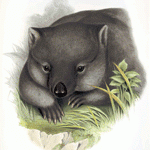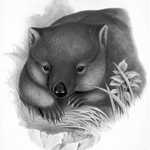Pride and Prejudice—A Classic?
I confess that I’m reading Pride and Prejudice for the first time. Yes, first time.
I never had a desire to read the classics, under any depiction of the term. And that included Austen’s works as well as anything by the Brontes. I didn’t have any interest in the big three early 20th century American authors—Hemingway, Steinbeck, and Faulkner.
Don’t know why none of the big authors or famous novels appealed. It could be because they were required reading in some high school English classes. But not only required reading, where you could read and enjoy them. Other requirements including analyzing the stories for meaning and importance and great cosmic relevance. Well, maybe not cosmic, but it seemed that way as presented by English teachers. Is it any wonder that I took as many classes in writing as I could? We had electives in my high school. We were required to take classes from a group of classes, but we could pick from the group. I loved the older stuff—Canterbury Tales comes to mind. But I really didn’t want to read and pick apart the Depression-era stories and other downers from early in the century.
So, back to Pride and Prejudice. I’m surprised that we have so much of Darcy’s thoughts. I hadn’t expected that from the movie versions of the story and from all that I’d heard of the book. I like hearing what he thinks.
I’m not as surprised by the amount of telling in comparison to showing—Austen wrote in a different era, with different expectations. But I really don’t enjoy reading that style of writing. Put me in a scene, Jane, I want to say. Give me some real-time action.
I’m only partway through, so who knows what will change before I reach the end. But while I can imagine the reasons for the book’s popularity through the years, I’d have more trouble explaining that popularity in the last 50 or so years, with the competition of television, video, and other amusements.
There is some clever writing, of course. But if Pride and Prejudice were written and published today, I doubt it would receive much acclaim. Yes, it’s a story out of another time. But what makes it such a success in this time? Aside from its historic importance, what commends it to readers today?
Or do they only read it because they must? Is that the draw?
I’ll admit that this is one story that I enjoyed more as a movie than in book form. I may sing a different tune once I’ve finished. If I do, I’ll let you know here.
Feel free to throw your stones now.
***



I enjoyed reading Pride and Prejudice but it’s a different style of writing, that’s for sure. I think the draw are the characters and it’s the characters that spawn the hoopla in fan fiction.
I’ve read a few fan fiction versions but I’ll also say, in my opinion, the theme is over done, people. Give it a rest.
I guess I’d better give my final reaction, after having finished Pride and Prejudice.
Still didn’t think it was special. Since Austen hadn’t written in scenes, I found myself filling in scenes with images from the movie. I wanted to see and experience what was happening, but when nothing was happening, when we remained in a character’s head rather than in a physical location, I had trouble doing that. I wish Austen had given us a stronger sense of place and a more concrete actions.
As I mentioned in the article, however, she wrote for different people in a different age. What would be attractive for them would not be as attractive to me.
I haven’t read Pride and Prejudice in years, but I can see the appeal. I reread Sense and Sensibility recently and Emma. The difference is what we expect today and what was enjoyable over a century ago are substantial.
I think the allure is the respect of a strong heroine and hero. You may groan at the events and the circumstances as outdated, but they both act from a grounded moral center–doing what they believe to be correct and necessary. One for their family and the other for their friend. Just as importantly, they acknowledge their failings.
But the thing I think is most intriguing about P&P is that it recalls a simpler time. Life ran at a slower pace and the scenes are bucolic. The diversions are simple pleasures of company and food.It evokes nostalgia even if one’s never known it. A sort of Jungian collective unconscious of an ideal time.